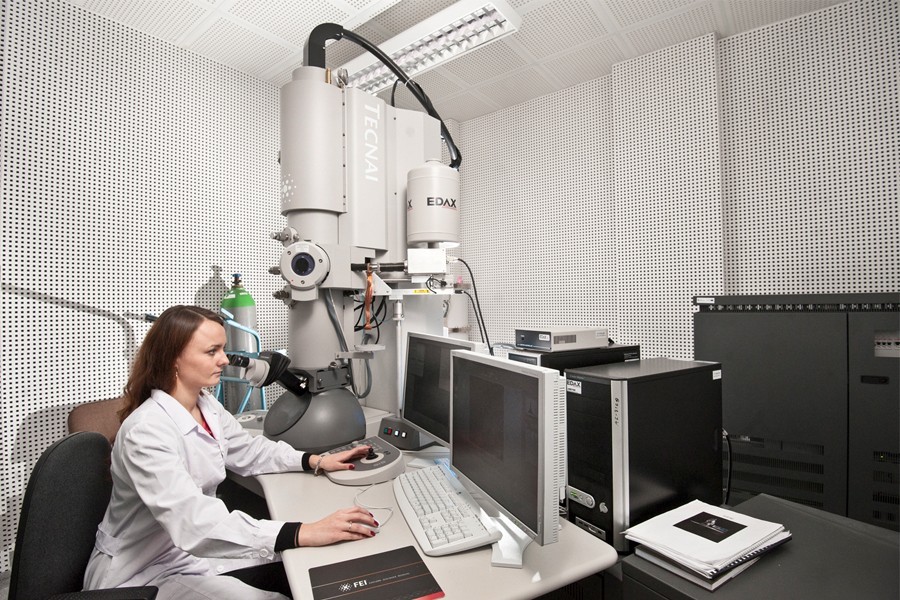In cooperation with the best national and foreign centres the Faculty of Physics runs, among the others, research on microscopic properties of solids, cold gases, Bose-Einstein condensates, the system of gravitationally interacting bodies as well as astrophysics of galaxies with active nuclei, cosmology and quantum field theory.
The Faculty uses unique magnetic and optical techniques to examine magnetic properties of nanostructures. It is the only centre in Poland that applies a unique Maximum Entropy Method to analyze selected experimental data. The unique in the world, monochromatic source of polarized radiation for Mössbauer research is operating just here.
The Faculty is a pioneer in Poland in the study of electron momentum distribution with the use of gamma radiation and synchrotron radiation. It takes part in the international consortium Virgo Collaboration established to coordinate search for gravitational waves in data collected by VIRGO (France/Italy) and LIGO (USA) detectors.
The Faculty has a well-equipped Astronomic Observatory, the only one in this part of Poland, and Regional Computer Laboratory for Teaching Natural Sciences. The Faculty offers weekly presentations of physical experiments for primary and secondary school students, and organizes popular science lectures. The Faculty has been organizing the International School on Physics and Chemistry of Condensed Matter in Bialowieza for 20 years.
It implements EU projects: “Combined study of nanostructured magnetic materials” (NANOMAGLAB) and “Femtosecond opto-magnetism and novel approaches to ultrafast magnetism at the nanoscale” (FANTOMAS). The Faculty students may develop their interests and knowledge in the Scientific Student Group of Physicists.
The most important research projects:
- The method of invariants in Mössbauer spectroscopy and its application to investigation of microscopic properties of solids;
- Patent Plus – support for patent procedures for the inventions created in scientific centres;
- Membership in the Polish National Scientific Networks: ARTMAG (”Magnetic Nanostructures for Spintronics”) and LFPPI (”Laboratory of Physical Basics of Information Processing”);
- International projects implemented in the centres of neutron and synchrotron research, among the others in DESY in Germany, LLB in France, ISIS in England and ELETTRA in Italy.
- The method of invariants in Mössbauer spectroscopy and its application to investigation of microscopic properties of solids;
- Patent Plus – support for patent procedures for the inventions created in scientific centres;
- Membership in the Polish National Scientific Networks: ARTMAG (”Magnetic Nanostructures for Spintronics”) and LFPPI (”Laboratory of Physical Basics of Information Processing”);
- International projects implemented in the centres of neutron and synchrotron research, among the others in DESY in Germany, LLB in France, ISIS in England and ELETTRA in Italy.
Courses:
Physics with the following specializations: Medical Physics, Experimental Physics, Theoretical Physics
The Faculty is entitled to confer the university degree of doctor of physical sciences in the field of physics.





